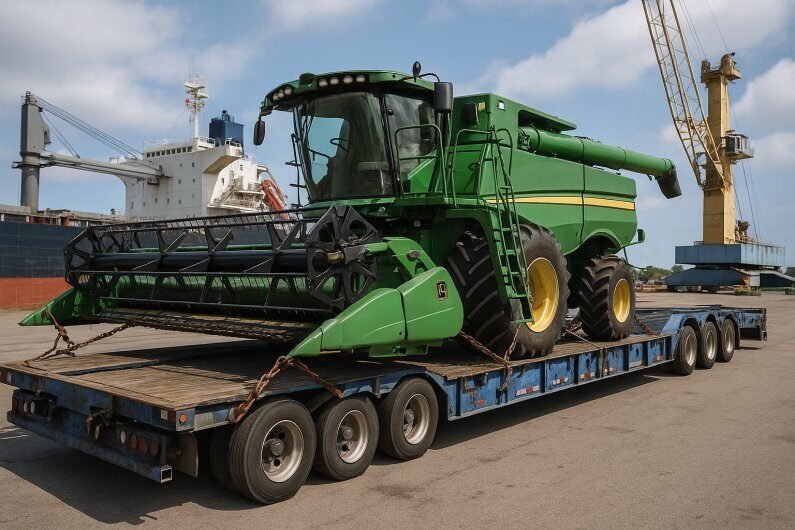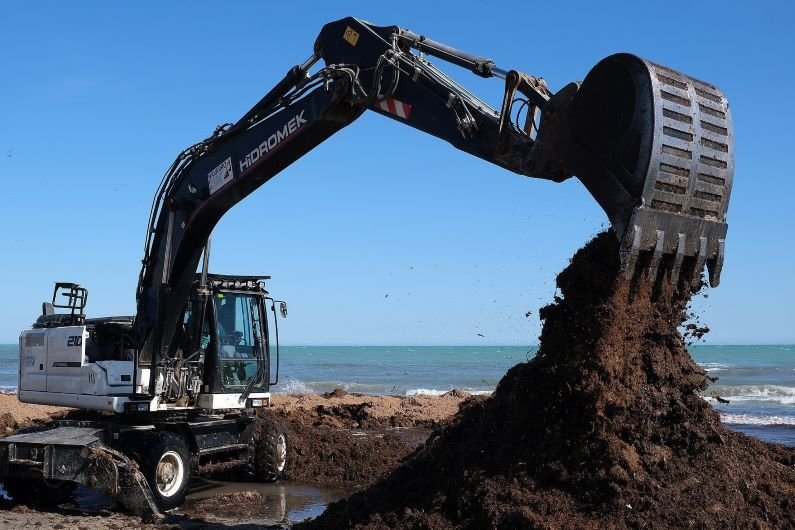Shipping drill rigs to the Congo involves a complex interplay of logistics, customized equipment, and meticulous planning.
The drill rigs, crucial for mineral exploration and extraction in the resource-rich Congo, must be shipped safely, securely, and effectively.
This article delves into the steps of transporting these massive machines, ensuring their intact arrival and operational readiness upon reaching their destination.
Understanding the Logistics of Shipping Drill Rigs to the Congo
Transporting drill rigs is not a straightforward task; it requires complex planning and coordination.
The logistics process involves selecting appropriate transportation modes, obtaining necessary permits, and ensuring compliance with both international shipping regulations and the specific requirements of the Congo.
The logistics team that you contract must also coordinate with local authorities in the Congo to navigate potential challenges posed by infrastructure limitations and regional regulations.
The journey from the point of origin to the final destination involves multiple stages. Drill rigs are typically transported via ocean freight due to their size and weight, followed by overland transportation to the drilling sites.
Given the remote locations of many drilling operations in the Congo, the logistics plan for shipping drill rigs to the Congo must account for the last-mile delivery. This includes potential off-road conditions and the need for specialized transport vehicles.
The Congo’s Need for Drill Rigs
The Congo is rich in natural resources, including minerals such as copper, cobalt, diamonds, gold and oil.
The country’s mining sector is a significant contributor to its economy. The Congo is now putting its efforts towards the oil and gas industry.
This is where shipping drill rigs to the Congo play a pivotal role in the exploration and extraction of oil, making them indispensable to the Congo.
Selecting the Right Drill Rigs for Congo Operations
Choosing the appropriate drill rigs for operations in the Congo involves considering several factors, including the terrain from where the oil is being extracted and the geological conditions of the drilling sites.
Different rigs are designed for specific tasks, such as rotary drilling for deeper, harder rock formations or percussion drilling for shallow, softer soils.
Furthermore, the selected drill rigs must be durable and capable of withstanding the harsh environmental conditions in many parts of the Congo.
Equipment reliability is crucial, as downtime due to mechanical failures can result in significant operational delays and increased costs.
Investing in high-quality, well-maintained drill rigs is essential for successful operations.

The Shipping Process
Shipping drill rigs to the Congo begins with a thorough assessment of the drill rig’s dimensions and weight to determine the most suitable transportation method.
Typically, drill rigs are dismantled into manageable components and securely packed to prevent damage during transit.
Once packed, the components are transported to the nearest port for sea freight shipping.
Upon arrival at a Congolese port, the drill rigs must be carefully unloaded and reassembled.
This phase involves precise coordination between the shipping company, local customs authorities, and logistics teams on the ground.
Ensuring that all necessary documentation, such as import permits and duty clearance forms, is in order is crucial to facilitate smooth customs processing and avoid delays.
Ensuring Safe and Secure Transportation Methods
Safety and security are vital when shipping heavy equipment like drill rigs. Proper packing and securing of the rigs are essential to prevent movement and damage during transit.
Specialized shipping containers and securing mechanisms, such as heavy-duty straps and braces, are used to stabilize the equipment.
Continuous monitoring and tracking of the shipment help in anticipating and mitigating any potential issues that might arise during transit.
Insurance coverage is also a critical aspect, providing financial protection against potential losses or damages.
Ensuring that the shipping company follows stringent safety protocols guarantees that the drill rigs reach their destination intact and operational.
Cost Considerations for Shipping Heavy Equipment
Shipping heavy equipment like drill rigs incurs significant costs, influenced by factors such as the size and weight of the equipment, the distance of the journey, and the transportation modes used.
Ocean freight is generally more cost-effective for long distances, but additional costs may arise from port handling, customs duties, and last-mile delivery.
Effective cost management involves comprehensive planning and budgeting from the outset.
It is essential to work with experienced shipping companies that can provide accurate cost estimates and identify potential savings opportunities.
Transparent communication regarding all potential expenses ensures that there are no surprises, allowing for better financial planning and resource allocation.
Why Choose Texas International Freight?
Texas International Freight stands out as a premier choice for shipping drill rigs to the Congo due to our extensive experience and expertise in handling heavy equipment logistics.
We offer customized shipping solutions tailored to the specific needs of the oil and gas industry and drilling operations, ensuring that the equipment arrives safely and efficiently.
Texas International Freight provides comprehensive support services, including customs clearance, documentation management, and on-ground logistics coordination.
Our commitment to safety, reliability, and customer satisfaction makes us a trusted partner for companies seeking to transport drill rigs and other heavy machinery to the Congo and throughout Africa.
Shipping drill rigs to the Congo is a multifaceted process that demands careful logistical planning, selection of appropriate equipment, and adherence to safety protocols.
By choosing experienced and reliable partners like Texas International Freight, we can help navigate the complexities of shipping heavy equipment, ensuring that operations proceed smoothly and efficiently.
Contact us today.





